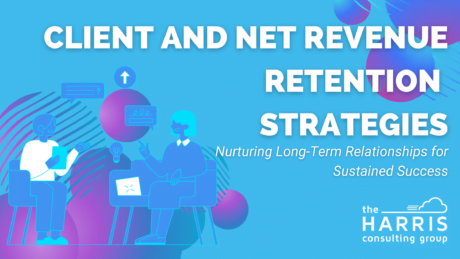In the competitive world of sales, the true measure of success goes far beyond closing a deal. Achieving customer success is a holistic approach that extends the seller’s responsibility into the post-sale journey, ensuring clients not only achieve their desired outcomes but also feel valued and understood throughout their entire experience.
This perspective is crucial in building long-lasting relationships and fostering a positive business environment conducive to repeat business and referrals. Here are the pivotal keys to achieving client success beyond the initial sale.
1. Understand Client Objectives
To truly grasp the essence of customer success, it’s essential to cultivate a relationship built on trust and mutual understanding. This means actively listening to your clients, and asking insightful questions that encourage them to open up about their deeper aspirations and fears.
Through this process, you not only gather valuable information but also demonstrate your commitment to their positive business outcomes. It’s about showing that you’re not just another vendor, but a strategic partner invested in their long-term achievements.
The N.E.A.T. Selling™ methodology facilitates this by guiding you on how to engage in meaningful conversations that reveal the core of what your clients truly need. Moreover, adapting your approach based on the unique context and requirements of each client is key.
No two clients are the same, and their definitions of success can vary widely. Having an adaptive approach not only enhances your ability to meet and exceed client expectations but also positions you as a flexible and thoughtful advisor.
In doing so, you create a competitive edge for yourself in the marketplace, ensuring that you’re not just meeting basic needs but actively contributing to your clients’ strategic success.
2. Deliver Personalized Solutions
In the competitive landscape of sales, the art of personalization goes beyond mere product adaptation. It involves a deep understanding of the client’s business environment, challenges, and objectives.
Engaging in meaningful conversations to uncover these layers of information allows sales professionals to position their offerings in a way that aligns with the client’s strategic goals.
Furthermore, leveraging technology and data analytics plays a crucial role in enhancing personalization efforts. Advanced tools can provide insights into customer behavior, preferences, and trends, enabling sales teams to anticipate needs and tailor their communication and solutions accordingly.
Everyone in the world wants to be seen, heard and understood. Adopting this philosophy is more than just the foundation of your customer success model and ensures a proactive approach guaranteeing your clients feel understood and valued. All of which leads to reduced churn, greater net revenue retention, and happier and more successful customers.
In a world where customers are bombarded with choices, those who offer a bespoke experience stand out. It’s easy to lose a customer, it’s hard to get new ones or win old ones back. It’s not just about selling a product or service; it’s about creating an experience that leaves a lasting impression, driving both immediate success and sustainable growth.
3. Establish Clear Communication Channels
Clear, consistent, and open communication forms the backbone of any successful client relationship. It’s essential to establish preferred channels and protocols for communication early in the relationship to ensure both parties are always on the same page. This openness fosters trust and confidence, ensuring that any issues or concerns can be addressed promptly and effectively.
4. Provide Ongoing Support and Education
Client success is an ongoing journey. Providing continuous support and education about your products or services helps clients maximize their investment, enhancing satisfaction and loyalty.
This could include regular check-ins, training sessions, or updates on new features and improvements. Demonstrating an ongoing commitment to their success reinforces the value of your relationship beyond the initial sale.
Moreover, by tailoring communication and solutions to each client’s unique needs and challenges, businesses can foster a deeper connection and understanding. This personalized approach not only solves immediate issues but also anticipates future needs.
Additionally, leveraging feedback mechanisms to gather insights directly from clients is crucial for continuous improvement and innovation. This cycle of feedback and improvement not only drives client success but also positions your company as a responsive and client-centric organization in the competitive marketplace.
6. Measure Success and Adjust Strategies Accordingly
Success should be measurable. Establish clear metrics or KPIs to track client success and regularly review these metrics to assess performance. This data-driven approach allows you to identify areas for improvement and adjust your strategies accordingly. It also provides tangible evidence of your commitment to achieving and exceeding client objectives.
Conclusion
Achieving customer success needs a deep understanding of the intricate dynamics of client expectations and market demands. It involves crafting strategies that are not only responsive but also proactive, foreseeing potential challenges and opportunities.
By embedding innovation and adaptability into your client interactions, you’re not just meeting expectations; you’re consistently exceeding them. This forward-thinking mindset fosters an environment where continuous improvement is the norm, ensuring that your business remains at the forefront of industry developments and client preferences.
Furthermore, building long-term relationships with clients is about more than just transactions; it’s about creating genuine connections. This requires a commitment to understanding their evolving needs, the industry landscape, and how external factors may affect their business.
Such relationships are built on mutual respect and a shared vision for success, making your clients more than just customers—they become advocates for your business, contributing to a positive reputation that attracts new opportunities.






